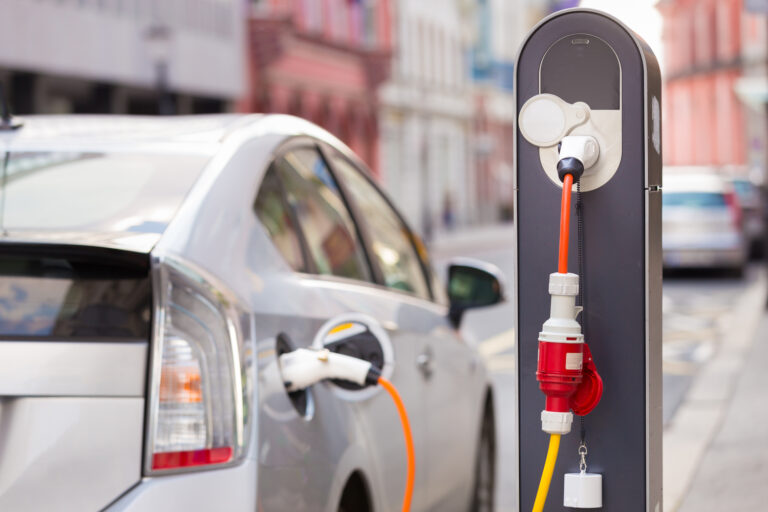
The future is green.
Industry analysts report by 2030 there will be 125 million hybrid and electric cars on the road worldwide. We are moving closer every day to an all-electric vehicle world.
And why not?
There are obvious environmental benefits that come from making the switch. Not to mention you can save a lot of money you would have spent on gas. There’s never been a better time to buy a hybrid or electric car.
So what is the difference between the two? Which car is best for me? In this guide, we will break down hybrid vs electric cars and help you decide when you should choose one or the other.
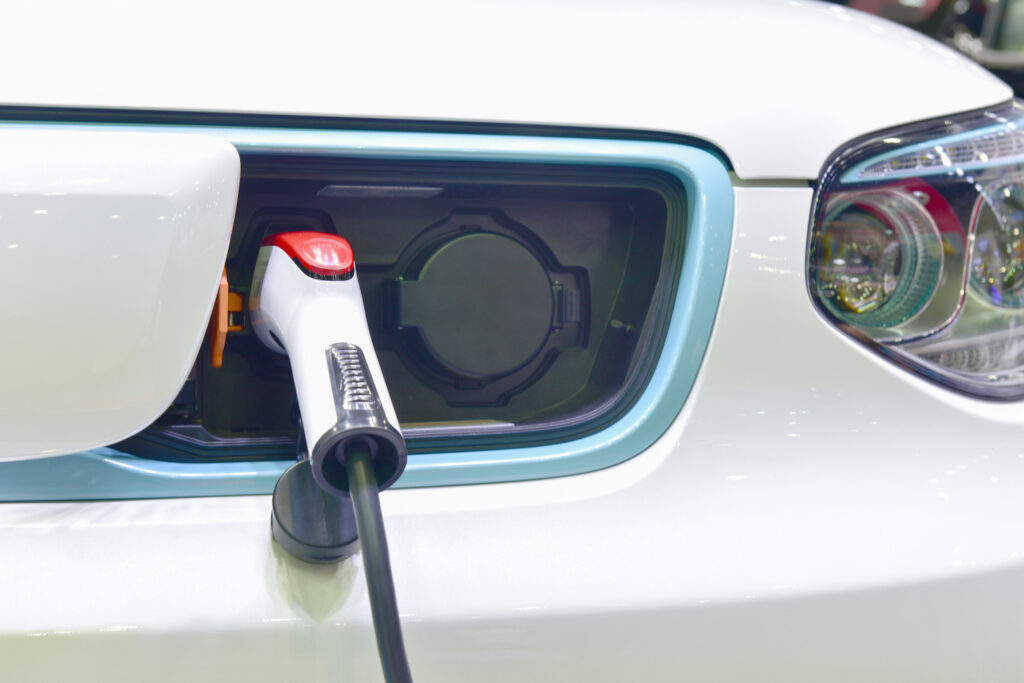
What is a Hybrid or Electric Car Exactly?
Good question.
A plug-in hybrid electric vehicle is a combination (or a hybrid if you will) of a gasoline and electric vehicle. They have an electric motor, a battery, an internal combustion motor, and a gas tank. You can say they have it all. A plug-in hybrid electric vehicle uses both gasoline and electricity for fuel. Some examples include the Cadilac ELR, the Toyota Prius Plug-in, and the Chevrolet Volt.
A parallel hybrid (also known as a series hybrid) is the most common type of hybrid car. This car has both an internal combustion motor and an electric engine. When driving around 15 mph the electric motor is activated. This vehicle is built for city traffic. The gasoline motor kicks in only as speed increases. The best part is the electric engine charges while you drive. Some examples include The Lexus UX, the Kia Niro Hybrid, and the Toyota Prius.
On the other hand, an electric car is fully electric. It has a battery instead of a gasoline tank and an electric engine instead of an internal combustion engine. Unlike the hybrid electric car, there isn’t a backup motor if your batteries are low. However, many models have room for a spare battery. Some examples include the Ford Focus Electric, the Tesla Model S and the Nissan Leaf.
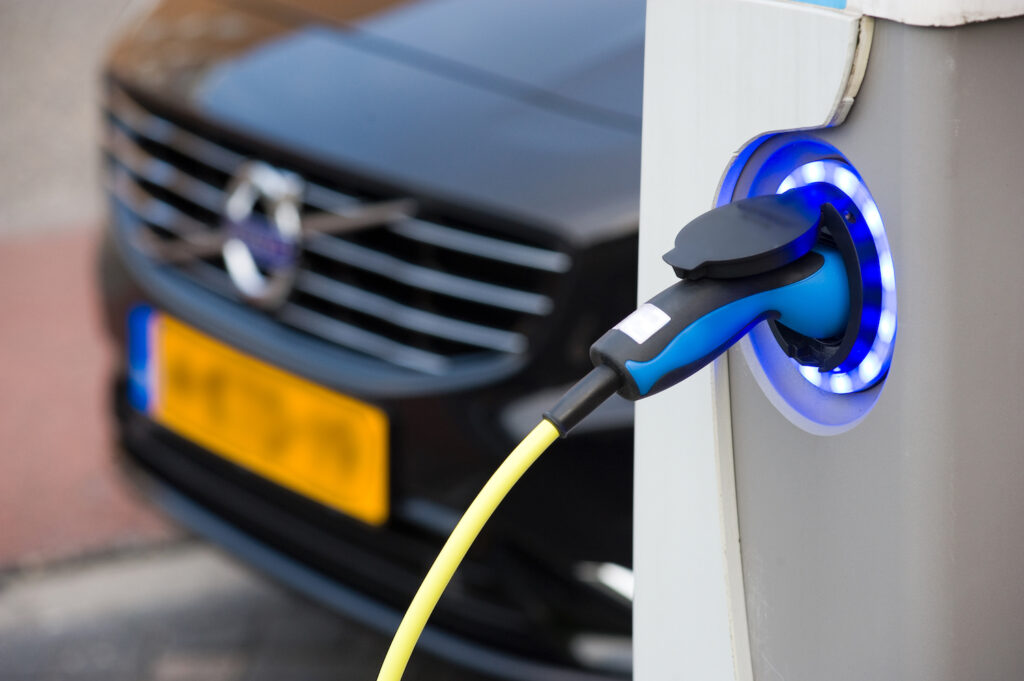
Hybrid vs Electric: Which One is Right for Me?
There are pros and cons in the hybrid vs electric car debate. The emission output and how each car needs to be charged. The cost of buying and upkeep an electric or hybrid car is another important factor along with the driving range, and gas mileage of each type. Also, lots of people buy a car for its look and style. Let’s break them each down.

Hybrid Car Pros
Charging – Parallel hybrids rely on breaking to drive the car in a process called regenerative braking. They also have smaller battery packs than other hybrid vehicles. A plug-in hybrid car plugs into an electric outlet. They can run on just electrical stored power or just gasoline. The plug-in hybrids also come with larger batteries a can a bit further than other models.
Cost – Most sedan hybrid cars cost between $23,000 and $35,000 for a brand new model. If you are looking for something a little more high end like the Tesla S model, expect to pay somewhere around $69,000 and up.
However, the US Department of Energy offers federal tax credits to U.S residents of up to $7,500 with the purchase of a plug-in hybrid car. Your state may provide additional tax credits as well. Be sure to check which type of hybrids your state provides credits for because these are different than federal tax credits.
Maintenance – If you are concerned with maintenance issues that may arise with your hybrid vehicle, don’t be! More hybrid cars are hitting the road every day and more and more mechanics shops have adapted to be able to repair them. Hybrid vehicles also tend to have fewer issues than conventional cars.
And they come with a great warranty! Toyota, Ford, and Honda offer 8 to 10-year warranties to cover their hybrid models. Hyundai’s hybrid batteries even come with a lifetime warranty. A hybrid car still needs to have it’s oil changed. Thanks to the regenerative braking technology a hybrid’s brake pads last much longer too.
Driving Range – A hybrid vehicle can travel somewhere between 600 and 700 miles before it needs to visit a gas station. That’s a long-range! Drivers will save money and time driving a hybrid car.
Style – From Toyota’s futuristic-looking Prius to the Nissan NSX sports car there is a style of hybrid car for everyone. Looking for something to haul the kids to soccer practice in? They’ve got that too. With so many models of hybrid cars to choose from from a lot of different manufacturers, you will more than likely be able to find a hybrid car that you like aesthetically.

Hybrid Car Cons
Emissions – Since hybrid cars burn traditional gasoline they emit the same greenhouse gases as conventional cars. However, hybrid cars are significantly more fuel-efficient than traditional cars and require much less gas. The U.S. Energy Information Administration sets the average mileage for a hybrid vehicle at 38.7 miles per gallon. A gas-only vehicle’s average mileage is set at 26.7 miles per gallon. See the difference?
But a Hybrid car cannot come close to the electric vehicle’s zero tailpipe emissions. That means zero emissions are released by way of the tailpipe. A hybrid beats a traditional car in emissions with its fuel-efficient technology but is no match for a fully electric vehicle.
Power – Hybrid cars typically have less power than a conventional car but more power than an electric car. In general terms, a hybrid car’s engine is usually smaller and that equals less horsepower and torque. A hybrid car won’t have trouble on the highway or climbing hills but they also do go quite as fast.
Cost – When you do have to take your hybrid car to a repair shop the cost can be significantly high. Like we said previously generally they don’t require much maintenance but when they do be prepared to pay.

Electric Car Pros
Emissions – This is where electric cars shine! All makes and models of electric vehicles produce zero direct emissions. ZERO! Direct emissions are emissions that are emitted into the air through the tailpipe, evaporation of the fuel system or during fueling.
Like all vehicles produced the electric car does have lifecycle emissions related to the manufacturing, distribution, and disposal of the car. However, electric vehicles typically produce fewer lifecycle emissions than a traditional car because burning gasoline or diesel for fuel releases more emissions.
If your number one reason for purchasing a hybrid or electric car is to reduce emissions than an electric car is the one for you.
Charging –. For people living in homes charging is very convenient. You simply plug-in your car after you park it. When you wake up the next morning it is ready to go! More charging stations are being built in communities every day. You can easily Google where the nearest electric car charging station is in your city.
Cost – Finally the cost is coming down on fully electric cars. Before they were priced out of reach for many consumers who wanted to make the switch to a fully electric vehicle. During the past few years, the cost of lithium batteries decreased dramatically by 70%. This lowered the average cost of electric cars.
Also, charging your electric car is much cheaper than filling a tank with gasoline or diesel. The U.S. Department of Energy estimated fueling an electric car costs half as much as a regular car with a gallon of gas estimated at $2.64 and an eGallon costing $1.24 on average.
Maintenance – There is a difference between hybrid and fully electric car maintenance because a fully electric car doesn’t have a combustion engine in addition to the electric engine. The good news is an electric engine requires less maintenance than a gas engine. You don’t have to worry about changing the oil, replacing the spark plugs, or changing a fuel filter.
You will, however, have to take care of the battery, replace the breaks and tires and keep an eye on the fluids. Overall, electric cars are a very low maintenance option and we put them one step ahead of their hybrid sisters on maintenance.
Instant Power – Switching on an electric motor is like flicking a switch. As soon as you flick it on it is on. There is instant power. It doesn’t need to build up power through acceleration. The Tesla Roadster is a 288 horsepower vehicle that produces a whopping 295 pound-feet of torque a soon as you step on the pedal. A Tesla Roadster S is about as fast as a Corvette Z06 with just under half its horsepower. And did we mention how quiet they are?
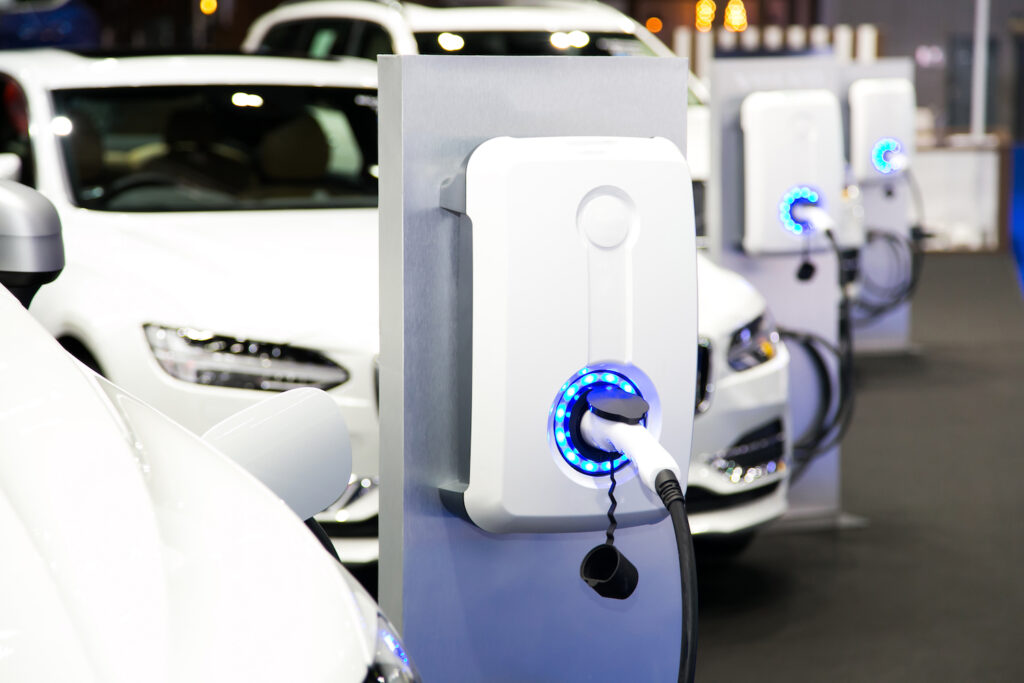
Electric Car Cons
Driving Range – It is estimated that the average American drives around 40 miles a day. With an average driving range of 200 miles for most electric cars, you don’t have to worry about running out of juice on your way to work. However, this can be possible if you drive the car and forget to charge it. It can also be problematic for long road trips. Compared to the driving range of a Hybrid vehicle the electric car doesn’t make the cut.
Charging Stations – Right now charging stations are a con for electric vehicles. It costs between $400 and $1,000 to buy a charging point and then you also have to pay to have them installed at your home. Some cities are starting to install more charging points for public use but they are not universal yet. This could require some prior planning on the part of the driver. You may even shop at different stores because they have a charging point. We do expect more charging points to be installed as the popularity of electric cars increases, but for now, it is a win for hybrid vs electric.
Style – There are a lot of different styles of electric cars. It does appear that electric cars will be the future and more and more styles are being designed all the time. Electric cars do not have to look like spaceships (although some of them do) and can appear quite classy. However, at this time there are more styles of hybrids available on the U.S. market. This may change in the future but right now the hybrid wins the style category in the hybrid vs electric debate.
Battery Cost – Sometimes batteries fail. It happens to laptops, cellphones and children’s toys. When that battery fails it will need to be replaced. A replacement hybrid battery can cost anywhere between $1,000 to $10,000 depending on the year, make and model of the car. It can cost 15,550 dollars to replace a battery in a Chevrolet Bolt when replaced after the warranty period. That’s huge! Right now batteries are very expensive for electric vehicles and that is why we marked it as a con in the hybrid vs electric debate.
Again, as electric cars become more popular this cost will probably go down but right now, it is expensive. The good news is that the batteries are designed to last a lifetime and many car manufacturers have programs to help reduce or offset the cost of a battery when it becomes necessary.
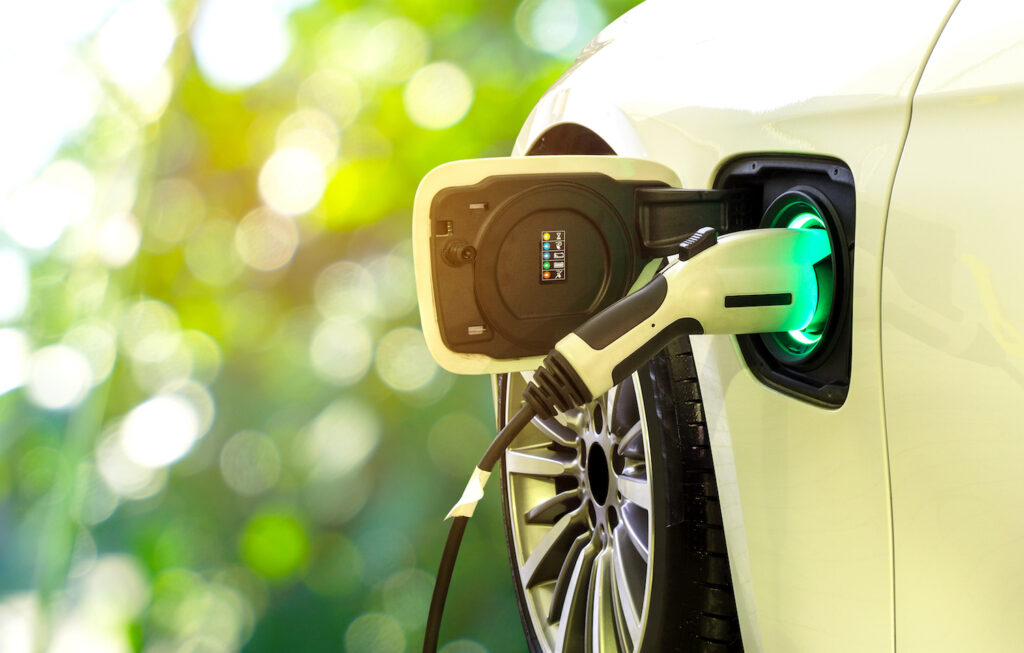
Final Thoughts
There is a Lot to Consider When Purchasing a Hybrid or Electric Car.
Which car is better for you depends a lot on your lifestyle, driving habits and personal taste. Do you often take long road trips? Do you live in a city? Can you afford to install a charging port at your home? Do you live in an area that has a lot of public ports available? These are all questions you have to ask yourself when looking at the hybrid vs electric debate and deciding which car is best.
If you enjoyed reading this guide on hybrid cars vs electric cars share it with your friends and check out our other articles on hybrid and electric vehicles.
[…] https://www.hybridcenter.org/hybrid-vs-electric-cars […]